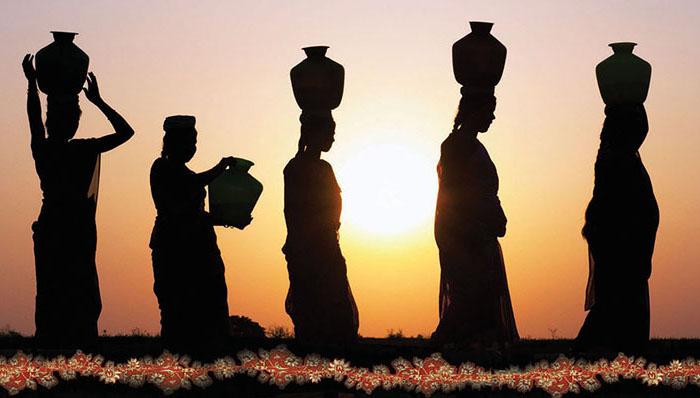In contemporary society, the Bahá’í teachings offer profound insights that advocate for a transformative ethos grounded in love and unity. This treatise, “Oneness 101: Working for Change in the Age of Love,” expounds on the principles of oneness as a pivotal theme within Bahá’í thought and how individuals are called to enact change in their communities. It elucidates various types of content and reflections regarding this paradigm, thereby serving as a comprehensive guide for those seeking to understand and apply these principles in their own lives.
To begin, one must appreciate the fundamental precept of oneness that permeates Bahá’í teachings. The concept asserts the intrinsic unity of all humanity, devoid of division through race, religion, or nationality. This foundational notion is not merely ideological; rather, it serves as the backbone for social action and reform. Individuals who embrace this ideology are encouraged to transcend individualistic tendencies and recognize their collective responsibility towards others.
Moreover, this oneness extends beyond the superficial acceptance of diversity. It demands an active engagement with the coercive forces of prejudice and inequality that permeate societies globally. Readers can expect engaging narratives that explore firsthand accounts of individuals who have successfully applied these teachings, thereby illustrating the transformative power of love-centered activism.
In examining the dynamics of social change, the discussion inevitably leads to the dual role of the individual and community. Bahá’í teachings meticulously outline the importance of individual agency coupled with communal support. Activism within this framework transcends traditional paradigms, where the focus is not solely on external activism but also on the inner transformation of the self. Content could explore individuals’ journeys that dovetail personal spiritual development with social initiatives, showcasing a holistic approach to change that resonates with Bahá’í values.
Additionally, readers can delve into the concept of consultation as a unique Bahá’í practice, which not only fosters collective decision-making but also facilitates an environment of respect and mutual understanding. This practice of seeking collective insight can be particularly illuminating when addressing social issues. Through an exploration of case studies where consultation has been central to problem-solving, one can glean valuable lessons in governance and ethics that could be beneficial to various organizations and communities.
Transitioning to the subject of spiritual empowerment, it is imperative to note that Bahá’í teachings posit that every individual possesses the potential to enact change. Explore how the themes of moral and spiritual education play a crucial role in nurturing this capability. By engaging with resources, workshops, and educational initiatives that emphasize the moral imperatives of serving humanity, readers will discern pathways that leaders forge within their communities, cultivating an environment where individuals are empowered to take action in love.
Furthermore, the intricacies of service as an expression of love cannot go unexamined. Service, in the Bahá’í view, is not a mere obligation; it is the manifestation of a heart inclined toward the well-being of others. Within this section, examine various models of service that have emerged in Bahá’í communities, allowing readers to reflect on how service can be strategically aligned with individual talents and local needs. Personal anecdotes and illustrations can illuminate the journey individuals embark upon to implement these teachings through tangible projects and initiatives, thereby enhancing the reader’s understanding and commitment to service.
As we traverse the thematic landscape of oneness and change, an exploration of the role of prayer and meditation in this process is indispensable. The spiritual practice serves as the bedrock for personal and collective transformation, fostering resilience and inner peace amidst turbulent times. Engaging with this subject invites readers to contemplate the transformative benefits of cultivating a prayerful life, and how such practices can rejuvenate one’s spirit, offering clarity and guidance in the pursuit of social justice.
It is essential to underscore that working for change in the Age of Love requires a commitment to ongoing learning and adaptation. The Bahá’í teachings emphasize that the pursuit of knowledge is a lifelong journey. Integrate discussions that underscore the significance of understanding social issues through a nuanced lens and encourage critical examination of prevailing biases. Content that prompts readers to interrogate their perceptions and assumptions will amplify their capacity for empathy and action.
Finally, it is imperative to address the collective impact of Bahá’í communities worldwide in championing global change. Through narratives that document collaborative efforts across various contexts—from grassroots movements to global initiatives—one can observe the tangible manifestations of oneness in action. Readers will appreciate the diversity of approaches adapted to local challenges while remaining anchored in the essential Bahá’í tenets of unity and love.
In conclusion, “Oneness 101: Working for Change in the Age of Love” invites readers to immerse themselves in the rich tapestry of Bahá’í teachings regarding social change. Through the lens of oneness, individual empowerment, and collective action, one finds a roadmap to navigate the complexities of contemporary society with love as the guiding principle. By embracing these teachings, individuals can contribute meaningfully to the cedars of their communities, fostering a culture of unity and hope.
